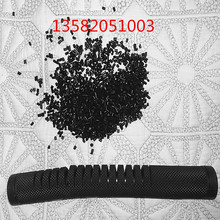Recently in Politics
- White Nationalism’s Most Famous Young Escapee Has A Warning
- It’s Amazing What $60 Million Can’t Buy
- Supreme Court Justice Shares Relatable Tale of Signaling Trump Coup Support to Get Back at Neighbor
- Why the New Social Media Trend to Block Celebrities Over Gaza Is Really Catching On
New Yorker journalist Jane Mayer has been promoting her new piece about Al Franken as an exculpatory tale. “Almost NOTHING His Main Accuser Said checks out,” Mayer tweeted Monday morning, describing her 12,000-plus-word investigation into the allegations of harassment and misbehavior that eight women levied against the then-senator in 2017. In another tweet, Mayer said that Franken was “railroaded.” In response to the executive editor of Lawfare, who accused Mayer of “rewriting history,” she tweeted, “Sometimes the first draft of history is wrong- especially when no one fact checks it.”
Mayer’s fact-checking does poke plenty of holes in the story told by conservative radio host Leeann Tweeden, whose breasts Franken can be seen pretending to grope (or possibly actually groping) in the photo that kicked off a rash of accusations against him. The image, which was taken while Tweeden was sleeping, comes from a 2006 USO tour. Tweeden claimed that it was snapped on Dec. 24, as a final insult from Franken after a stretch of teasing; that Franken had said he’d written a kiss into a skit they performed together specifically so he’d get to kiss Tweeden; that she’d expressed her discomfort to Franken and others; that Franken had “badgered” her into rehearsing the kiss and stuck his tongue in her mouth; and that she never let Franken get close to her face after that first rehearsal. Mayer found that the photo was taken on Dec. 21, that Franken had written the skit years earlier and performed it with other women, and that Tweeden had continued performing the skit with Franken for the rest of the tour. She was unable to find anyone to corroborate Tweeden’s contemporaneous discomfort, and a retired military pilot told Mayer it would be unlikely that Franken and Tweeden would have been left alone to rehearse a skit.
From there, through Mayer’s own analysis and plenty of comments from Franken supporters, the piece argues that feminists, the media, and Franken’s fellow Democrats were too hasty in demanding his resignation. In addition to recounting Tweeden’s misstatements and pro-Trump views, Mayer explains that Tweeden’s claims were printed by her radio station, the conservative 790 KABC, without being fact-checked. That story was then spread by conservative media figures hungry to attack a senator who’d begun to distinguish himself among anti-Trump Democrats. (Mayer notes that Sean Hannity, among others, quoted approvingly from my colleague Mark Joseph Stern’s piece calling for Franken’s resignation.) And what of the other seven accusations from women, including Democrats, who said Franken groped them, kissed them without their consent, or attempted to do one of those things? Mayer quotes from numerous Franken defenders who say that he couldn’t possibly have meant any harm. Mayer also writes that “Franken could be physically obtuse,” prone to swinging his arms too freely and chewing with his mouth open.
Advertisement Advertisement Advertisement AdvertisementI have argued that Franken was right to resign, that his resignation not only saved the Democratic Party’s reputation but set an important standard (or perhaps, disseminated a cautionary tale) for male politicians who could stand to think a little harder about how they should be treating women. Coming from that perspective, reading Mayer’s piece was a surreal experience. Almost none of the facts Mayer presents to exonerate Franken serve that purpose. Rather, they add up to a misreading of the #MeToo movement and a miscasting of what the allegations against Franken were actually about.
While it’s fair of Mayer to document how Tweeden misrepresented Franken’s actions, she also includes another set of explanations that come off more like familiar attempts to discredit a victim of sexual harassment. Mayer notes that photographs show Tweeden and Franken laughing together at an event in 2009. (You’ll recall that Harvey Weinstein tried to use photos of smiling accusers as evidence of his innocence.) Mayer also explains that USO tours are full of bawdy sex jokes and that what Tweeden says Franken did—write a kiss into a skit specifically so he could kiss her—was actually the plotof that very same skit. The fake boob-grabbing was part of the skit, too. Mayer also points out that Tweeden “participated in other ribald USO skits,” including one that had her spank Robin Williams and another that had her agree to sleep with a soldier whose name she draws from a box. The joke is that Franken filled the box with slips containing his own name. Is the conclusion that we’re expected to draw here that a woman relinquishes the right to complain about offstage sexual harassment if she’s subjected herself to sexual objectification for onstage laughs?
Advertisement Advertisement When we’re thinking about Franken’s fate, it’s dangerous to overemphasize Tweeden’s motivations and trustworthiness.Nothing that Mayer debunks gets to the heart of why Franken resigned, or even really speaks to detractors’ interpretation of his behavior. For me, and for many others, the gleeful breast-fondling photo and the accretion of accusations from other women—including many of Franken’s political supporters—added up to a picture that justified Franken’s departure from political life. The fact that Franken had written a nonconsensual boob-grabbing pantomime into his skit before reenacting it in front of a camera while his co-star was asleep doesn’t make his actions any more defensible. And the defenses Franken’s supporters raise to Mayer in response to the other women’s allegations are far from convincing. They say Franken is a “social—not a sexual—‘lip-kisser.’ ” “It was the New York hello-goodbye kiss,” one anonymous Franken adviser said of the comedian-turned-senator’s tendency to kiss random people on the mouth, which upset a few of his accusers. (I have never heard of a “New York hello-goodbye kiss,” nor have any of the New Yorkers I asked about the supposed practice.) At least one of Franken’s political aides, per Mayer, had to tell him to stop kissing female acquaintances on the lips during his first campaign. So, which is it—a totally normal thing New Yorkers do or an abnormal thing that skeeves people out?
Advertisement Advertisement AdvertisementMayer also quotes many, many men, plus some women, who assert that Franken has neither harassed them nor, to their knowledge, anyone they know. “He wasn’t Cary Grant. But tongue down the throat? No,” says a woman Mayer identifies as Franken’s longtime fundraiser. Considering Mayer’s belief in the importance of fact-checking, it’s strange that someone who didn’t see the alleged kissing rehearsal is considered an authority on whether it happened.
AdvertisementThere are other places in the piece where Mayer seems too eager to see Franken as a childlike innocent. Mayer reports that Sarah Silverman once said that Franken “has nosexuality.” She also quotes Traylor Portman, an actress who had performed Franken’s sexual-coercion skit with him on a previous USO tour, as saying, “Franken is a good man. I remember him talking so sweetly and lovingly about his wife. … There were Dallas Cowboy cheerleaders [on the tour], and he didn’t pay any special attention to them.” Franken’s own 2004 account of his time with the USO, though, includes a joke about another tour featuring two different cheerleaders. When he got home from that tour, he wrote, he was planning to “have sex with [his] wife—while thinking about the cheerleaders.”
Advertisement AdvertisementFranken also wrote that while he behaved “paternalistically” toward the young women in a hip-hop trio on the tour, that “was not entirely true” when it came to the cheerleaders. For me at least, it’s easy to imagine this same set of facts in a much different piece, one that gives more weight to the fact that Franken posed for a boob-grabbing photo with a sleeping co-star and proudly admitted to making another pair of co-workers the objects of his sexual interest than it does to the approving testimony of his friends.
Yes, Tweeden almost certainly lied about some things. It also appears that she tailored her accusation to damage a person whose politics she didn’t like. (Although it’s worth noting that, after Franken apologized to her, Tweeden said she didn’t want him to resign.) But when we’re thinking about Franken’s fate, it’s dangerous to overemphasize Tweeden’s motivations and trustworthiness. The key question here is whether Franken’s behavior, in aggregate, means he doesn’t deserve a place in the U.S. Senate.
Advertisement AdvertisementI won’t pretend there’s a clear and obvious answer to that question, but I do think there’s a better way to try to answer it. Instead of dissecting Franken’s case for the purposes of exonerating him, we could be discussing what we should expect from elected officials who’ve been creepy and sexist. How can they atone for their behavior? What threshold of proof should we demand? Is being removed from one of the most powerful positions in America akin to “capital punishment,” as one of Franken’s former Senate colleagues suggests? If we strive to hold politicians accountable for past policy positions, can we not question the character of a man who, for many years, wrote, performed, and was seemingly personally gratified by the humor of sexual coercion and objectification? Alas, skits that promote rape culture in an institution famous for its epidemic rates of sexual assault were apparently not seen as troubling a decade ago—but it’s not too late!
Advertisement Advertisement AdvertisementWe should also be asking why some politically powerful men, among them Franken and Joe Biden, cannot muster the same instinctual respect for women as they can for the men. Both Franken and Biden have described themselves as serial huggers whose charisma is inextricable from the down-home physicality they bring to their interactions with everyday people. But there have been no reports that Franken regularly kissed male strangers and acquaintances on the mouth, nor that he squeezed their waists and butts during photo-ops or mimed grabbing their genitals.
A grassroots movement against sexism and abuse has no winners and losers.A lot of people, including some of the Democrats who initially called for Franken to step down, believe the allegations against him should have been addressed in a formal congressional investigation. (Franken ultimately resigned under pressure after 36 Democratic senators publicly called on him to do so.) I might be inclined to agree. But Mayer and many of her Franken-supporting sources don’t appear to be as interested in the broader project of understanding sexism and sexual harassment as they are in drawing bold lines around its scope. Several people in Mayer’s piece lament that Franken was put in the same category as, for instance, Weinstein. While Franken’s conservative critics did certainly conflate his case with far more egregious ones, a huge number of his critics did not. Sen. Kirsten Gillibrand, who has suffered the brunt of the pro-Franken backlash, specifically differentiated him from Weinstein, Roy Moore, and Donald Trump in her statement calling for Franken’s resignation, saying that his behavior was “still unquestionably wrong, and should not be tolerated by those of us who are privileged to work in public service.”
Advertisement Advertisement AdvertisementIt betrays a failure of imagination and a fundamental distrust of women’s activism to strive to limit the #MeToo movement to men accused of the most heinous sexual assaults. Near the beginning of her piece, Mayer describes Franken as a man “on the losing side of the #MeToo movement.” To me, this was a jarring, reductive framing of a powerful push for social change, one that has demanded women revisit, reevaluate, and lay bare their most painful memories. A grassroots movement against sexism and abuse has no winners and losers. Neither is there anyone at the top to adjudicate claims, dole out punishments, and make the rules. If Franken resigned too hastily, that’s not the fault of the #MeToo movement, nor of the female senators who were repulsed by a compromising photo and by an allegation from a Democratic Senate staffer some of them knew. Efforts to make sense of the accusations against Franken should be welcomed by people invested in justice for the accused and accusers alike. Efforts to frame the #MeToo movement as a dangerous zero-sum game should not.
Tweet Share Share Comment

 相关文章
相关文章




 精彩导读
精彩导读



 热门资讯
热门资讯 关注我们
关注我们
